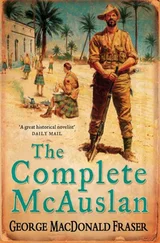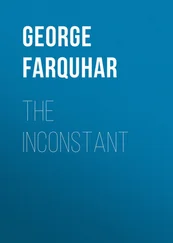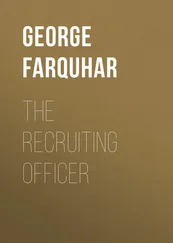George Fraser - The Steel Bonnets
Здесь есть возможность читать онлайн «George Fraser - The Steel Bonnets» — ознакомительный отрывок электронной книги совершенно бесплатно, а после прочтения отрывка купить полную версию. В некоторых случаях можно слушать аудио, скачать через торрент в формате fb2 и присутствует краткое содержание. Жанр: unrecognised, на английском языке. Описание произведения, (предисловие) а так же отзывы посетителей доступны на портале библиотеки ЛибКат.
- Название:The Steel Bonnets
- Автор:
- Жанр:
- Год:неизвестен
- ISBN:нет данных
- Рейтинг книги:4 / 5. Голосов: 1
-
Избранное:Добавить в избранное
- Отзывы:
-
Ваша оценка:
- 80
- 1
- 2
- 3
- 4
- 5
The Steel Bonnets: краткое содержание, описание и аннотация
Предлагаем к чтению аннотацию, описание, краткое содержание или предисловие (зависит от того, что написал сам автор книги «The Steel Bonnets»). Если вы не нашли необходимую информацию о книге — напишите в комментариях, мы постараемся отыскать её.
The Steel Bonnets — читать онлайн ознакомительный отрывок
Ниже представлен текст книги, разбитый по страницам. Система сохранения места последней прочитанной страницы, позволяет с удобством читать онлайн бесплатно книгу «The Steel Bonnets», без необходимости каждый раз заново искать на чём Вы остановились. Поставьте закладку, и сможете в любой момент перейти на страницу, на которой закончили чтение.
Интервал:
Закладка:
It is this side of the reiver’s work—the danger, the bravery, the almost sporting spirit in which he rode out—that has been emphasised by the romancers. It was there, no doubt of it, and it is easy to treat him as a hero figure because sometimes he was indeed heroic. People like to remember him at his best, as a jolly, daredevil Robin Hood, rough but generous, a product of his times who was no doubt full of mischief, but was decent at bottom, and had some peculiar patriotic aura glowing round him as he went about his work of pillage. It is not difficult, by a judicious selection of cases and evidence, to justify this view.
Isabell Routledge, a widow, owning a small herd and a house of her own in the English West March, saw him rather differently. On April 2 1581 she was visited by thirty Elliots, who ransacked her home, took her four oxen, her six cows, and her only horse, and made off with all her possessions. At that, she was luckier than another woman named Hetherington, who a few years later was raided, again by Elliots, who murdered her husband and another man, and stole her herd of forty head.
And both were more fortunate than Hecky Noble who, within a few nights of Mrs Hetherington’s widowhood, was a victim of that gay desperado, Dickie Armstrong of Dryhope, 1 and his 100 jolly followers. Apart from reiving a herd of 200 head, and destroying nine houses, the raiders also burned alive Hecky’s son John, and his daughter-in-law, who was pregnant.
For Dick of Dryhope this was part of the night’s work. Two days earlier he had murdered a miller named Tailor and another man, burned the mill and twelve houses, and reived 100 beasts. Two months later, he and his friends were despoiling another woman, Margaret Forster, of Bewcastle, stealing her eighteen cattle and rifling her home.
These are not isolated cases. On the contrary, they are typical of Border raiding. The lists are endless of small herds lifted, of homes burned, of “insight” (household goods) removed, value a few pounds, of men wounded, or kidnapped, or occasionally killed. To give an idea of what this meant, one can only examine figures for certain areas and periods.
When the Elliots of Liddesdale were riding in the summer of 1581, they were moving in bands generally 100 strong. In June and July alone they stole in the West March of England 274 cattle and twelve horses, ransacked nine houses, “wounded and maimed” three men, and took one prisoner. Statistics are deceptive; if one tries to see it in the light of a modern newspaper report, it is easier to imagine the horror of thirty sturdy hooligans descending on a woman’s house in the night, looting and smashing, and then riding off. This happened along the Marches day in, day out, year after year.
It is instructive to consider the havoc wrought by only one of the Border raiding tribes, over a period. Figures are available for the forays run by the Elliots over a decade from the early 1580s; they are almost certainly conservative figures, since they take account only of actual raids complained of and recorded. And they include only raids in which the Elliots were in a majority; other forays in which the Elliots took a hand, but were not the ringleaders, have been excluded.
There were more than forty of these “exclusively Elliot” raids, and the total score, at the lowest estimate, was more than 3000 cattle stolen, over £1000 worth of insight taken, sixty-six buildings destroyed, fourteen men murdered, and 146 prisoners kidnapped. And this was done, not by the entire Elliot clan, but by only seventy-nine principal riders with their unnamed followers. Taking account of population, property values, the purchasing power of money, the size of the area involved, and the general social conditions, it is worth considering whether the Gennas in Chicago, or the Jameses in the Midwest, or the Gilzais of the North-west Frontier, were such an appalling continual menace as this one Scottish family of the Western Border.
The state of affairs looks even worse when regarded not from a family standpoint, but a geographical one. The Elliots were one of many robber families; Liddesdale was one of many robber’s roosts, though admittedly the worst by far. According to a list of bills against Liddesdale, dated April 30 1590, the reivers of that valley alone were riding an average of a raid a week through the winter of 1589–90. In that time they carried off more than 850 beasts, took sixty prisoners, wounded ten men, killed one, took insight of £200, and burned five houses.
If one adds in the previous year, Liddesdale’s total is swollen by another 600-odd beasts, four murders, twenty-four prisoners, and one town sacked.
It is quite a record, and from it and other lists of complaints—for it must be emphasised that the figures cited are not unusually high or out of the way—a different picture of the Border reiver emerges. He can be seen for what he very often was, not at all heroic, but a nasty, cruel, mean-spirited ruffian, who preferred the soft mark provided by small farmers, widows, and lonely steadings; who came in overwhelming force, destroyed wantonly, beat up and even killed if he was resisted, and literally stripped his victims of everything they had.
It is fair to quote from a detailed list of the goods taken by a band of thirty Crosers and Elliots in November 1589 from a home on the Middle March; apart from cattle and weapons, the robbers’ haul also included a woman’s kirtle and sleeves, kerchiefs, underclothes, sheets, a cauldron, a pan, shirts, and four “children’s coates”. A far cry from Sherwood and the legendary code of robbing the rich to give to the poor. Nor were such petty spoils the exclusive prey of the broken men and outlaws; this was the kind of work that such romantic champions as the Bold Buccleuch and Kinmont Willie were doing; the fact that they did it on a much greater scale lends them no dignity at all.
This is to look at reiving’s blackest side, and it is fatally easy to make the mistake of judging by modern standards, and to forget that, so far as the actual pillaging was concerned, no one thought it a matter for shame. A great deal of nonsense has been talked and written about the Borderer’s moral standards, and one is right to be sceptical of apologists; nevertheless, it is most important to appreciate the distinction, in the Border mind, between reiving, with its associated offences—blackmail, kidnapping, feud killing, and so on—on the one hand, and “ordinary” crime on the other. Robert Carey was one outsider who fully understood this distinction, and although he did not condone the reivers’ behaviour, he did try to explain it. “So have they (the Scots) been used to rob and spoil, and think it their inherytance, scorning all opposition”, he wrote, adding that “the English thief [is] as bad or worse than the Scot”. Most of us do not think of ourselves as criminals, but possibly there are things in our daily lives which we regard as our “inheritance” which will move future generations to critical disgust.
Crime which had nothing to do with reiving, however, was regarded by the Borderers much as other communities have always regarded it. Interesting evidence of this appears in Carey’s memoirs, when he mentions “2 gentlemen theeves that robbed and took purses from travellers in the highways (a theft that was never heard of in these parts before) ”. Carey “got them betrayed”, and they were hanged at Newcastle.
This is not to argue, as some writers have done, that the reiver should be judged in a more sympathetic light than an ordinary criminal, but to point out that, if he is to be judged, his own standards of right and wrong should be taken into consideration. To assume that they were the same as those of even his fellow-Elizabethans would be a mistake.
Читать дальшеИнтервал:
Закладка:
Похожие книги на «The Steel Bonnets»
Представляем Вашему вниманию похожие книги на «The Steel Bonnets» списком для выбора. Мы отобрали схожую по названию и смыслу литературу в надежде предоставить читателям больше вариантов отыскать новые, интересные, ещё непрочитанные произведения.
Обсуждение, отзывы о книге «The Steel Bonnets» и просто собственные мнения читателей. Оставьте ваши комментарии, напишите, что Вы думаете о произведении, его смысле или главных героях. Укажите что конкретно понравилось, а что нет, и почему Вы так считаете.












